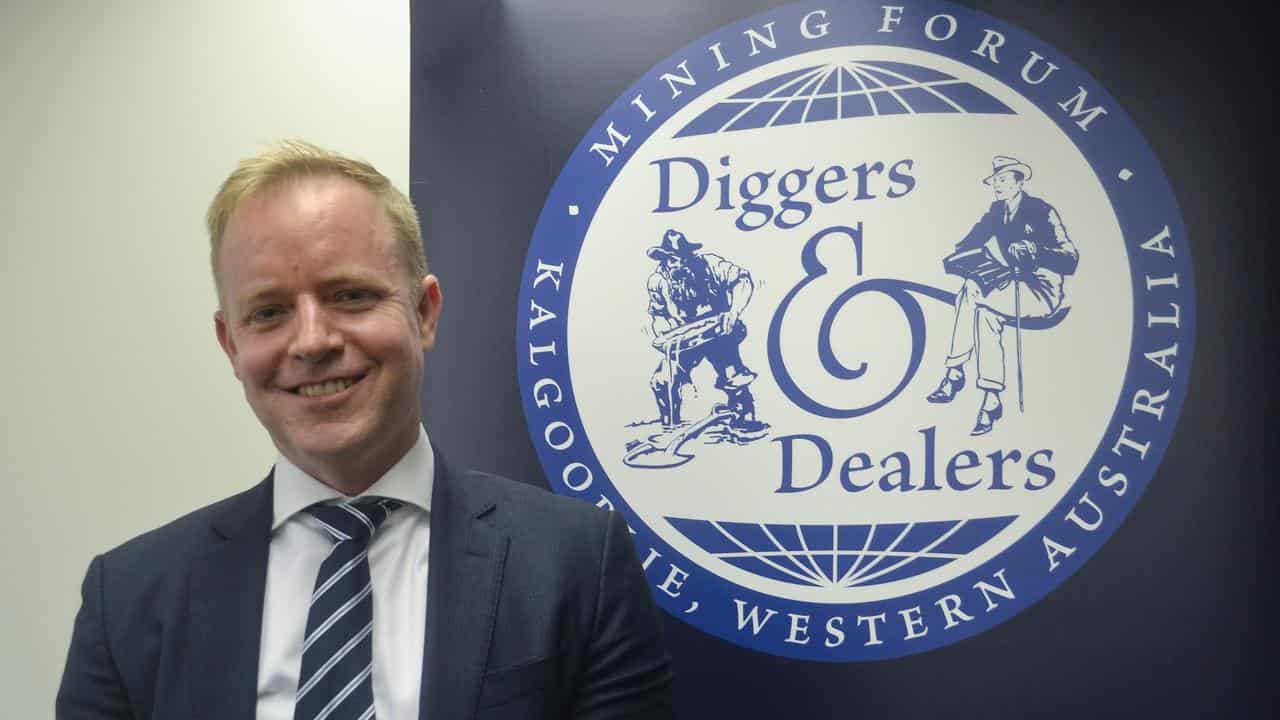
Battery mineral miners are tapping into the pioneering spirit to take Australia and the world's energy sources into a new era.
Yet many market watchers may be dudding themselves and curtailing capital for newcomers by relying on old ways of thinking.
It's no surprise to Global Lithium managing director Ron Mitchell that minerals used in rechargeable batteries stole the show at this week's Diggers and Dealers Mining Forum in Australia's largest outback city.
As chair of the London Metal Exchange lithium and cobalt committee, an important advocacy body for developing a more liquid and mature market, he's a driving force behind the future trade.
"It's still very early days in terms of this energy transition," Mr Mitchell told AAP in Kalgoorlie, Western Australia.
"People often point to the spot price being the price for lithium but the amount of tonnage traded on spot market is so tiny.
"The other challenge around liquidity is that most of the product is tied up on the off-take contracts."
Off-take deals, or agreements to buy or sell upcoming goods, are being struck for Australia's lithium before production even starts at new projects, as industrial giants and automakers race to lock in long-term supply.
But the international price for high-purity lithium, or spodumene, had a savage five-month decline after peaking at the end of last year.
Many analysts, with their predictions on pricing, assume very optimistic scenarios around production and quality, Mr Mitchell says.
"I know from my experience, even for the major incumbents, it's hard work and it's difficult."
He says expertise in the lithium industry is "quite limited", which is another other factor that will impact supply.
Every ore body is different and there are geopolitical challenges, whether operating in South America, Africa, Canada or the United States.
"They're not necessarily safe jurisdiction challenges but more around the permitting and approvals process - it's very lengthy," he says.
"And there's a void of talent as it relates to lithium processing in those jurisdictions as well."
Historically, 90-plus per cent of purchasing has been by North Asia - China, Japan and South Korea.
As the West joins the race, the liquidity and level of sophistication around contracting and pricing could take years to become more mature.
"There are lots of challenges but that's what makes it so exciting," Mr Mitchell says.
Australia's leading lithium producer, Pilbara Minerals, took out the Digger of the Year Award at a glittering dinner in a giant marquee to close the annual mining bash that attracts thousands of delegates from around the world.
CEO Dale Henderson says Australia has become the world's largest supplier of lithium but WA producers need to be bold.
"The energy shift needs Australia and it's a massive opportunity," he says.
"This is a whole new era we're entering and I encourage that we tap into that pioneering spirit that we have here."
The emerging company award went to Patriot Battery Minerals, which is developing the largest hard-rock lithium resource in the Americas in an ancient geological region known as the Canadian Shield or Laurentian Plateau.
"It looks like an overnight success," according to Brisbane-based CEO Blair Way.
But that's not the case, as the firm started small and has built an executive team to take the project beyond the first resource estimate that makes it the world's eighth largest.
The ASX-listed firm has also caught the eye of American chemicals giant Albemarle, which took a five per cent stake last month to secure more of the raw material used to make electric car batteries.
Global lithium supply is expected to enter a deficit relative to demand by 2025, according to BMI, a unit of data and research firm Fitch Solutions.
A BMI report released on Thursday forecast China's lithium production to grow six per cent annually from 2023 to 2032, supported by several new projects and dominance in battery manufacturing.
But China's manufacturers are more likely to seek foreign supply to meet future needs than rely on an acceleration in domestic production, given greater environmental scrutiny and intensive use of water needed for lithium extraction, the report says.
Competing moves in Australia, the United States and Canada to build sovereign processing and battery manufacturing suggest limited upside for China's production, regardless of price or pressure on supply, according to BMI.
At newcomer Global Lithium, Mr Mitchell has overseen the entry of Mineral Resources as a cornerstone investor, a 10-year offtake agreement and an upgraded resource base across the young company's Manna and Marble Bar Lithium Projects in WA.
They have the world's 13th largest undeveloped lithium project and he says there's more to come in sizing the resource.
He says the mines of the future are going to look very different to the mines of the past.
"In the way we rehabilitate, the way we give contracting opportunities to the local communities, the way we process our tailings", he says.
Operations are also far more sophisticated with a lot more technology going into mines, which should also make them safer - for workers and the environment.
"A beautiful thing about spodumene is that it's a non-hazardous material," Mr Mitchell says.
The beneficiation, which is the process to physically separate and concentrate the valuable parts of the ore, is very clean, with the flotation agent an organic palm oil.
It produces a final product that looks like beach sand.
"If you can put your hand in every part of the production process, you know it's safe, and that's exactly the case for spodumene," he says.
But he's not as upbeat about the federal government's critical minerals strategy, noting that "there's not a lot of meat on those bones".
He says infrastructure will be key, particularly public infrastructure that Australian taxpayers have already built.
"We're not asking for cash handouts," he adds.
"We just want to be treated fairly when it comes to access to port and rail."




